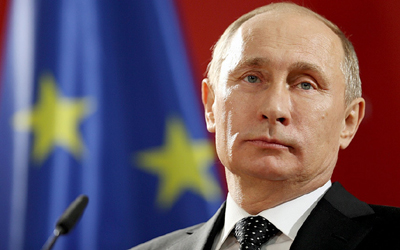| « U.S. Public Don’t Care if ‘News’media Lie | Jimmy Carter Explains What North Korean Leaders Told Him » |
Putin Addresses Russia’s Energy Week Forum
Stephen Lendman
It’s ongoing from October 3 - 7 in Moscow and St. Petersburg, attended by representatives of hundreds of international energy companies, officials from 70 foreign countries, leading experts in the field participating.
Topics discussed include global energy needs, fuel and energy sector directions, along with challenges the sector faces to supply worldwide needs in the years ahead.
Putin addressed these issues in his welcoming remarks, explaining why Russia is attractive to foreign investors despite sanctions. It’s a reliable business partner, Putin saying “(t)he most significant advantage we have is that we never double-deal. We are always honest with our partners. We openly lay out our position.”
“It’s to our advantage” to operate this way, the same way it engages in all geopolitical dealings. Foreign partners cooperating with Russia see it for themselves.
“If we disagree with something, we say so outright and outline our position. We also say that we do keep partners’ position in mind and respect it, but that we will opt for this or that mode of action,” said Putin.
“In this respect, we have a tremendous advantage, because we are predictable, unlike many other countries.”
“It is this feature, and not our military potential, that attracts our partners to the development of relations with Russia.”
“Naturally, the military potential and economic capabilities do play a very important role, sometimes the decisive one. But our growing defense and security capabilities and the potential of our defense-industrial complex are not the only things that matter.”
“Traditionally we sell large amounts of weapons to markets in the Middle East, because we have very friendly old-time relations with many countries of the region. But we also develop economic cooperation with them.”
Last year, Russian trade with the region increased by 12.5%, up significantly in the first six months of 2017 - in energy, machinery, high-tech products, weapons and munitions.
Before Soviet Russia’s dissolution, opportunities were limited, things far different today, Russia “open to cooperation and our partners can see that,” Putin explained.
Illegal sanctions made Russia’s economy more self-sufficient. Its political, economic and military relationship with China is stronger than ever.
Putin and Saudi King Salman will meet in Moscow on Thursday, the first ever visit by a regime monarch on official business.
Bilateral ties were restored in 1992. They’re geopolitical rivals on Syria and Iran, open to cooperate on other issues, notably commercial ones, while recognizing Russia’s growing influence in the Middle East.
Earlier, Riyadh failed trying to bribe Moscow with billions of dollars in energy deals in return for abandoning Syria’s Assad.
Why King Salman is coming now isn’t clear, aside from announcing new joint energy and technology ventures a lower-level Saudi official could handle.
In 2015, Riyadh committed to invest billions of dollars in Russia in the energy and defense sectors. Nothing came to fruition.
Moscow is a reliable geopolitical and commercial partner, not Riyadh, a rogue state serving its own agenda.
-###-
Stephen Lendman lives in Chicago. He can be reached at lendmanstephen@sbcglobal.net.
VISIT MY NEW WEB SITE: stephenlendman.org (Home - Stephen Lendman)
My newest book as editor and contributor is titled "Flashpoint in Ukraine: How the US Drive for Hegemony Risks WW III."
Listen to cutting-edge discussions with distinguished guests on the Progressive Radio News Hour on the Progressive Radio Network.
Virus-free. www.avg.com



